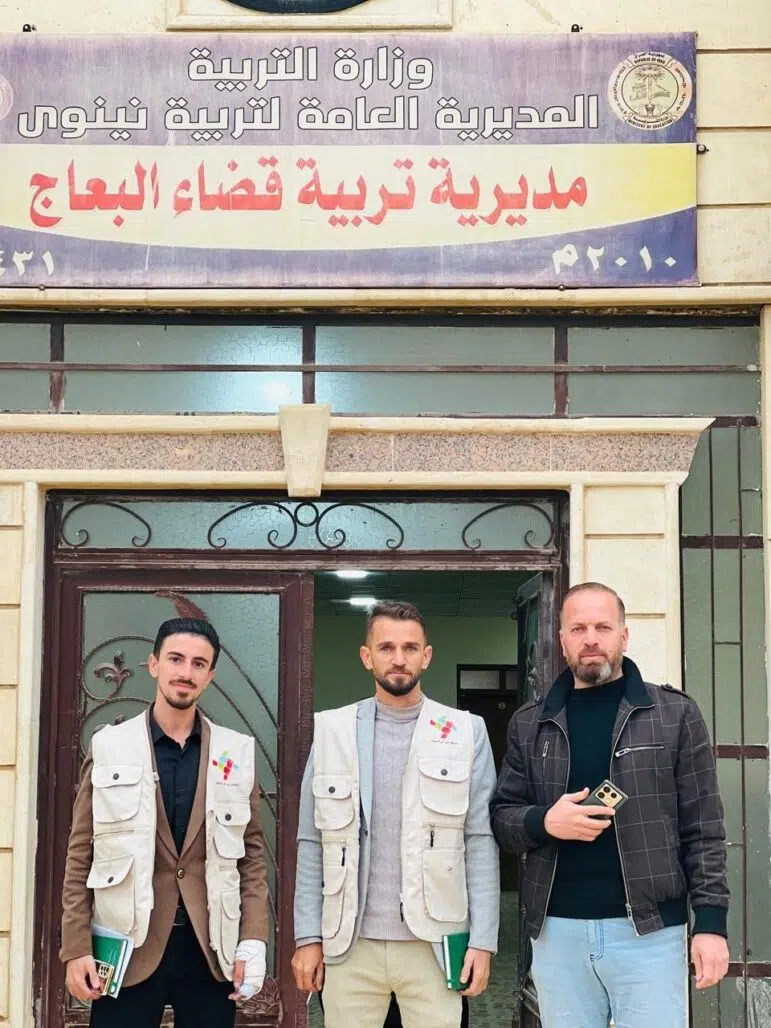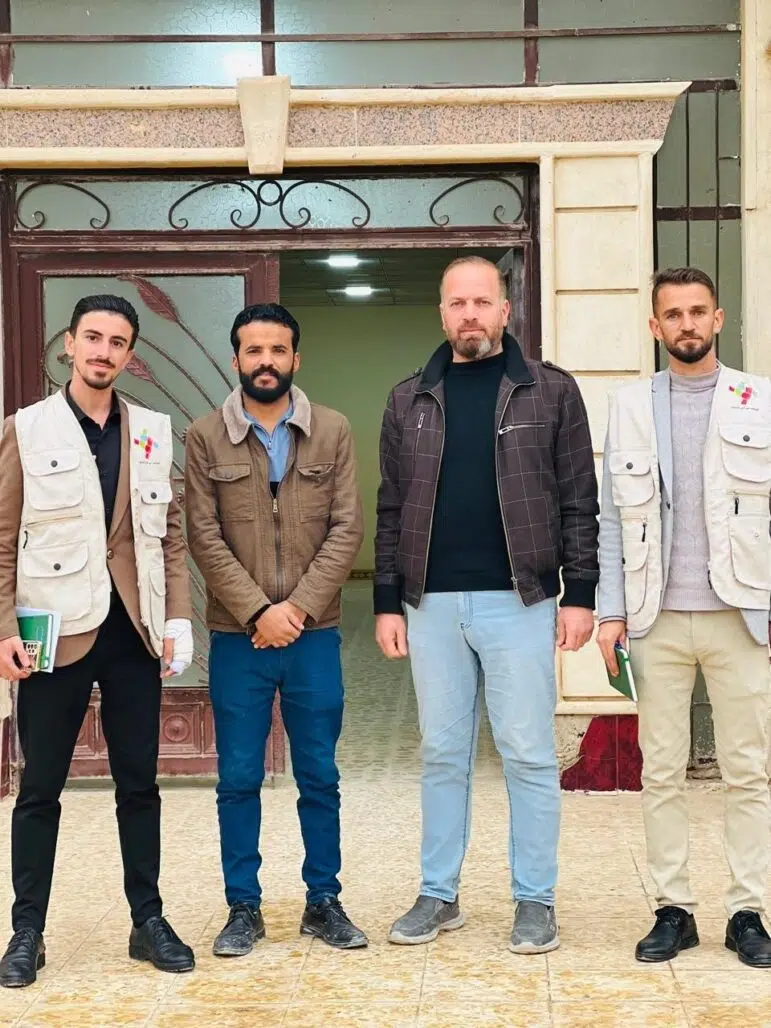Restoring Education: Youth-Led Advocacy for Safe and Accessible Schools in Iraq
How leaders of a youth peace team turned displacement into determination and brought classrooms back to life in Qaylan, Iraq.

Qaylan*, a town in Iraq’s Ba’aj district with a predominantly Yazidi population, was heavily impacted by the 2014 ISIS invasion. Most families were forced to flee, seeking safety in displacement camps.
After years of living in temporary camps, Mahdi* returned to his hometown with his sister’s family, including her school-aged children. He was devastated by what he found. Vital infrastructure—like schools, water systems, and electricity—had been destroyed or left in severe disrepair. While there were compensation programs to encourage the repair and rebuilding of homes, there were still significant gaps in essential services.
As more families with young children settled back in, they began noticing an injustice: schools abandoned during the conflict were still being occupied by the police officials. And the authorities showed little interest in giving up their new barracks.
This created serious barriers for children, as the only way they could obtain an education was by traveling long distances along unsafe roads. “The students who were supposed to study in that school were walking more than 30 minutes to reach a school on the other side of the district,” Mahdi explained. “They were facing overcrowded classrooms and bad weather.”
Youth Advocacy in Action
Although community members raised the issue with local authorities, real action wasn’t taken, and real changes were never implemented. This led NP to support the Youth Peace Team (YPT) in launching an advocacy initiative focused on a push for safe and accessible education for children.
Our staff helped coordinate Youth Peace Teams after recognizing that young people in Iraq are incredibly passionate and motivated in addressing violence and promoting peace within their communities. NP equipped the youth with tools, training, and contacts that can best support them.
The first challenge Madhi and the Qaylan team faced was identifying the officials who shared their concern for education. They leaned on relationships with the Ba’aj Youth Peace Team, which helped them secure a meeting with the local Education Department.
In that meeting, the courageous group of Qaylan leaders confidently presented their growing concerns: schools should be spaces for learning—not military use.
Their persistence paid off. The education director agreed to reclaim at least one school building. An official order was issued for the police to vacate the school.
A Community Victory
The decision was met with relief and gratitude. Parents viewed it as a turning point—both for their children’s education and for restoring trust in local institutions. One parent shared:
"We now have hope through advocacy. Our children feel much more at ease at school; there is no longer a fear of stray dogs or car accidents. Most importantly, they now have a place to learn."
“The students returned to study in the school after the police evacuated. They now feel safe and can continue their education without having to walk long distances, facing harsh weather, stray dogs, and exhaustion,” Mahdi told NP. “The Baaj Education Directorate assured us that if we identified any other schools needed by the community but occupied by security forces, we should inform them and they would take action.”
The YPT’s success shows what youth-led, nonviolent advocacy can accomplish. It also reflects how families are restoring a sense of stability within their community, while building trust with local authorities. More notably, this achievement paints a picture of what it looks like for government officials to work with its’ civilians to rebuild their city post-conflict.
As he continues his peacebuilding work, Mahdi says he’s proud to be part of a grassroots movement leading a transformation in his community.
Related: From Conflict to Classroom
* * *
*Name changed to maintain privacy

